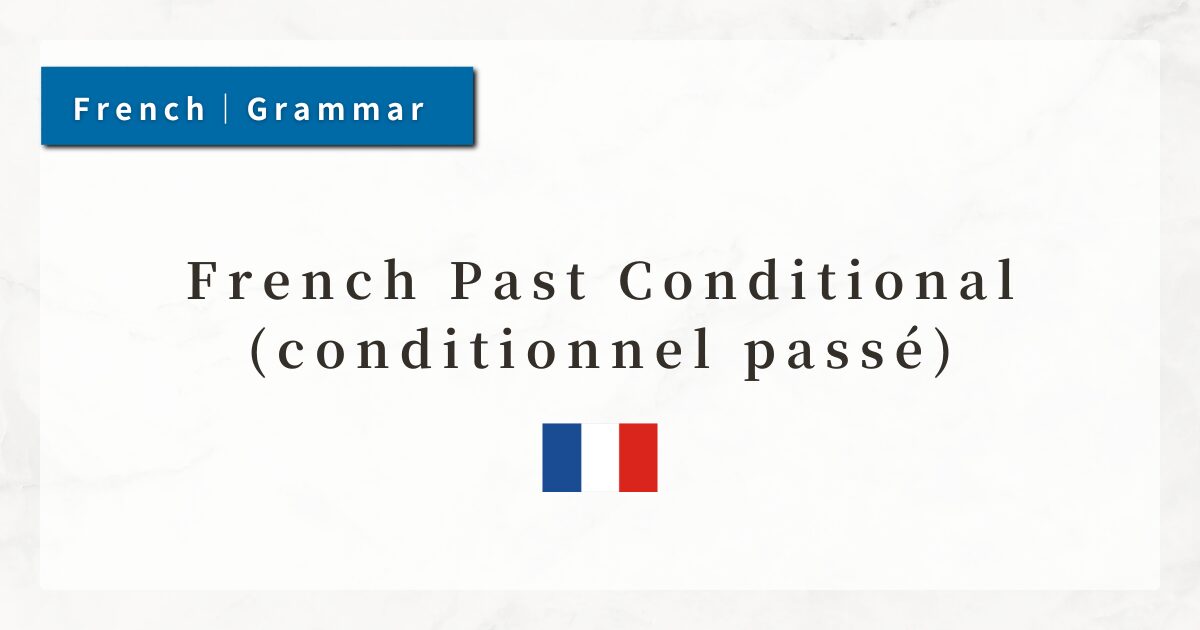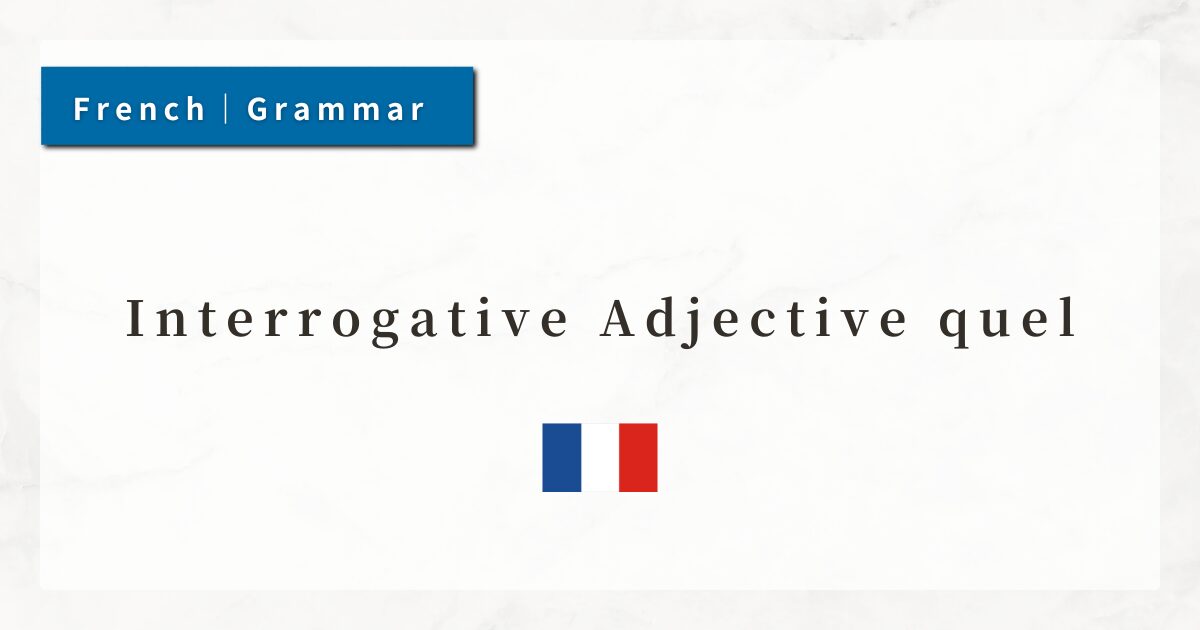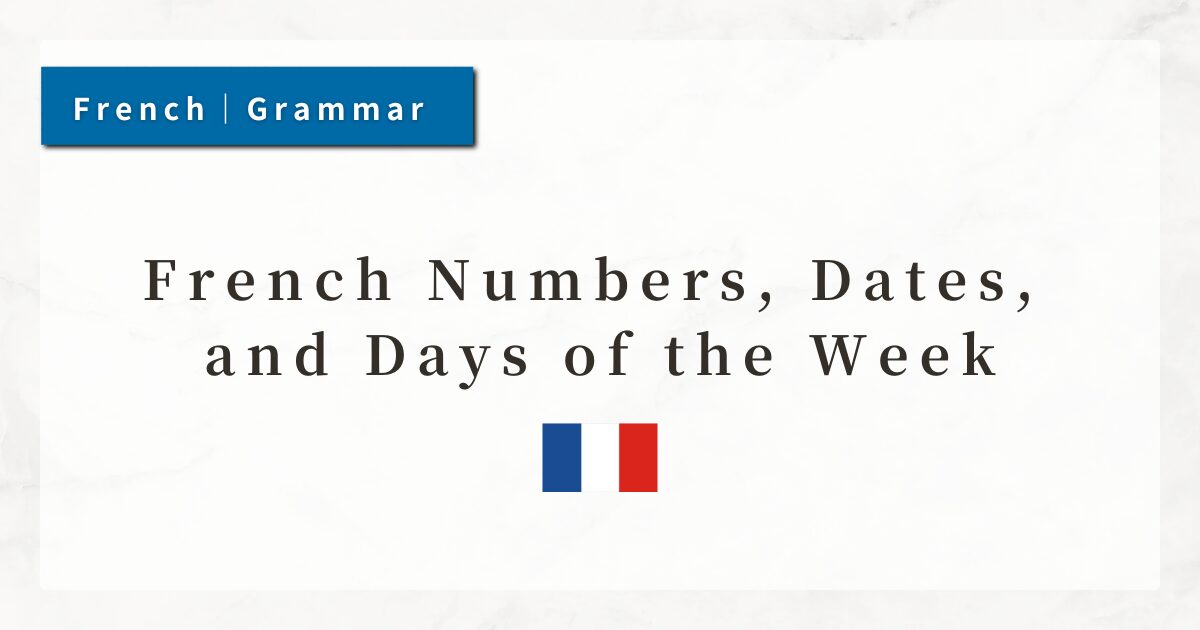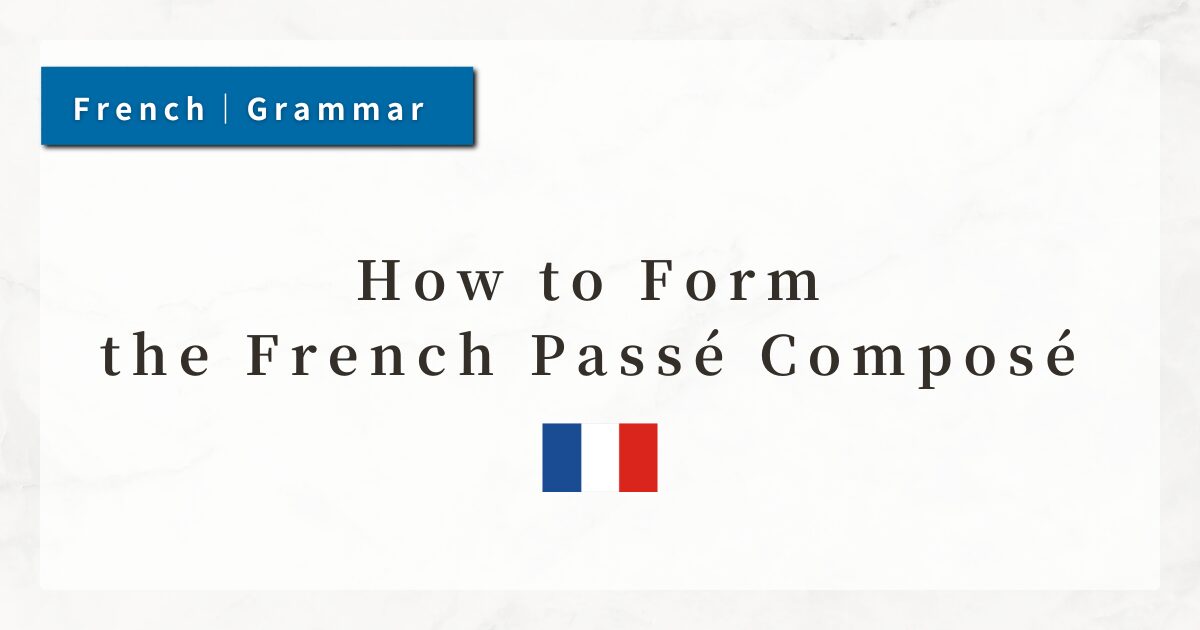#65 French Past Conditional (conditionnel passé) | Conjugation Rules and Usage

The past conditional is used to express hypothetical situations in the past (“if … had …, … would have …”) or assumptions about the past (“must have … / was said to have …”).
Since it frequently appears in both spoken and written French, it is useful to understand this tense early on as an extension of the conditional mood.
In this lesson, I will explain how to form the past conditional, its main uses, and important points to keep in mind.
1. Structure of the Past Conditional
The past conditional is a tense that expresses unreal conditions in the past (“if … had …, … would have …”) or assumptions about the past (“must have … / was said to have …”).
It is similar to English “would have + past participle”, and is especially common in conditional sentences with siclauses or in reported/uncertain statements.
- auxiliary verb (avoir or être) in the present conditional + past participle
- j’aurais mangé
(I would have eaten) - je serais allé(e)
(I would have gone)
The choice of auxiliary follows the same rules as the passé composé: verbs of movement and reflexive verbs generally take être.
2. Unreal Conditions in the Past
The past conditional expresses situations that did not actually happen.
- Si + plus-que-parfait, conditionnel passé
- Si j’avais eu plus de temps, j’aurais voyagé au Japon.
(If I had had more time, I would have traveled to Japan.)
→ In reality, there was no time, so the trip did not happen. - Si elle avait étudié, elle aurait réussi l’examen.
(If she had studied, she would have passed the exam.)
→ In reality, she did not study, and she failed.
3. Main Clauses Without “Si”
In everyday conversation, the si clause may be omitted, leaving only the main clause in the past conditional.
- J’aurais aimé te voir.
(I would have liked to see you.)
→ In reality, we did not meet. - On aurait dû partir plus tôt.
(We should have left earlier.)
→ In reality, we did not leave early.
Even without the si clause, the context implies a condition such as “if things had been different.”
4. Assumptions and Reported Information About the Past
The past conditional is also used in news reports and indirect statements to express information that is uncertain or unconfirmed.
- Selon les témoins, il aurait quitté la ville hier soir.
(According to witnesses, he is said to have left the city last night.) - Il y aurait eu un accident sur l’autoroute.
(There is said to have been an accident on the highway.)
Here, the past conditional conveys that the information has not been fully verified.
5. Regret, Criticism, and Advice
The past conditional can also express regret, criticism, or advice about actions not taken in the past.
- Tu aurais pu me prévenir.
(You could have let me know.)
→ Implies reproach or criticism. - Vous auriez dû étudier davantage.
(You should have studied more.)
→ Expresses advice or regret.
6. Summary
- The past conditional expresses unreal conditions or assumptions about the past.
- Form
→ auxiliary (avoir / être) in the present conditional + past participle. - In past conditional sentences, the basic structure is “Si + plus-que-parfait, conditionnel passé.”
- Pay attention to auxiliary selection (avoir / être) and omitted “si ” clauses.
- Frequently used to express criticism, regret, or advice.




